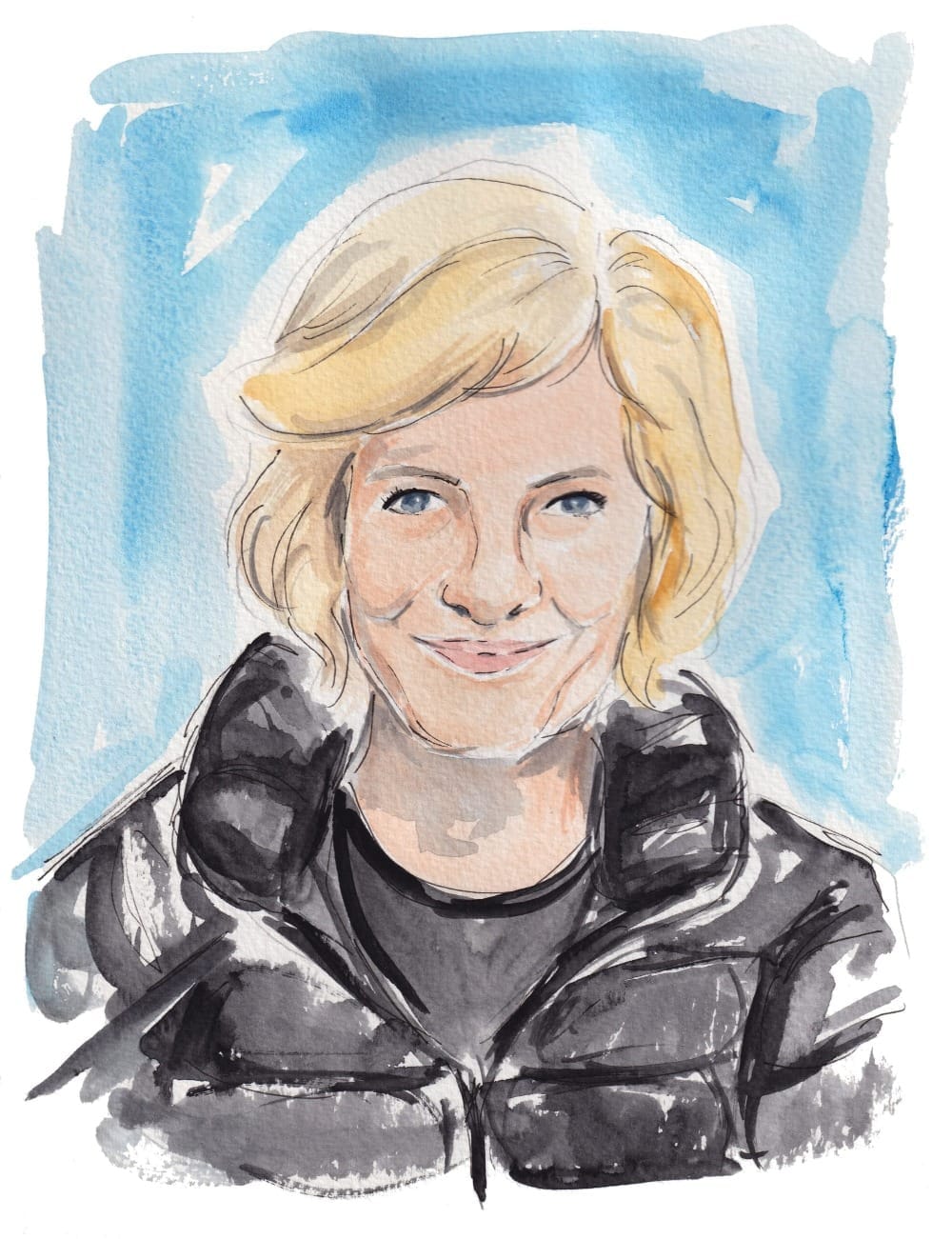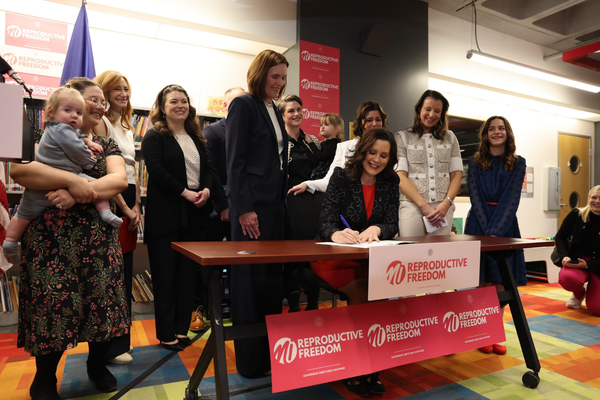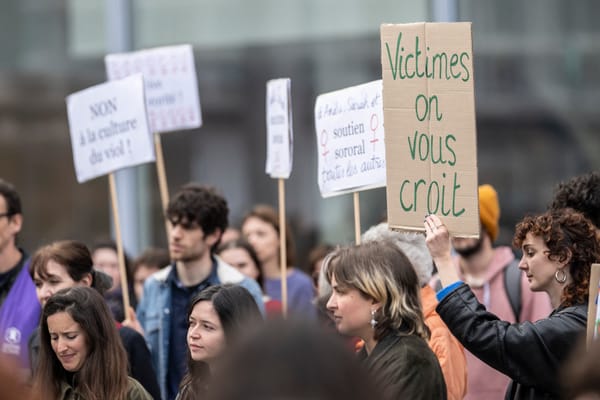In a Deeply Divided World, Can Anything Unite Us? Perhaps a Comma Or Two.
Ellen Jovin is a grammarian whose conversations about language can help us connect in a world that feels broken.

America is divided. Polarization is rife.
Are we talking about politics? Perhaps. But when Ellen Jovin expresses these sentiments she is more likely referring to the Oxford comma, dangling modifiers or split infinitives.
Jovin, who lives on New York City's Upper West Side, is a grammarian: She’s a self-described grammar nerd who relishes conversations and, indeed, debates, with anyone—family, friends, strangers—about the wide and wonderful world of language. And she doesn’t just limit herself to English: Ellen has studied more than 25 languages for fun.
While many might share Jovin’s enthusiasm for the spoken and written word, few can claim that it’s taken them to all 50 states of America—with a folding “Grammar Table” in tow.
What started as road trip to discuss punctuation, tenses and syntax with people across the country, evolved into an educational odyssey—a nationwide tour of town squares, sidewalks and other public places, teaching Jovin some unexpected lessons; lessons about our collective hunger for community and human contact—and about the beauty of disagreeing on something that is neither ideological (though some may argue otherwise) nor political.
In 2022, Jovin published a book about the traveling grammar table—“Rebel with a Clause”—which became a national bestseller. Her husband Brandt Johnson, meanwhile, spent six years making a documentary about his wife. It captures Jovin’s journey and the sometimes funny, sometimes sad, sometimes touching moments of humanity that can unexpectedly stem from conversations ostensibly about grammar. A New York City premiere is scheduled for March 4, which also happens to be National Grammar Day. (Yes, really.)
Jovin shared with The Persistent her love of grammar, the origins of her Grammar Table (don’t worry, we’ll explain), and how conversations about language can help us connect in a divided world.





